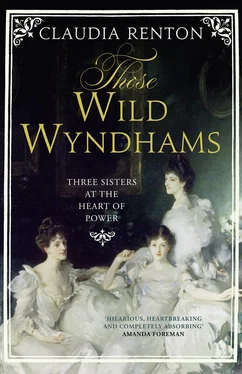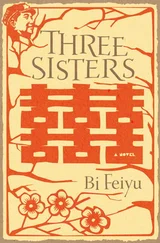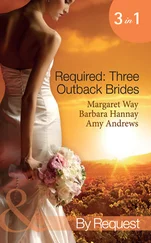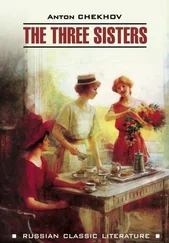As Percy retreated ever more rapidly to Tory squirearchy, his parliamentary career was stalling. In 1874, after six years in the wilderness, the Conservatives returned to power under Disraeli. ‘We have been borne down in a torrent of gin and beer,’ mourned Gladstone, attributing defeat to the licensing bills pushed by the non-conformist temperance supporters of his party. 37Disraeli, half genius, half charlatan, had already put in a bid to make Conservatives the party of popular imperialism in a speech delivered at Crystal Palace in 1872. 38Now he embarked upon an ‘unwholesome political cocktail’ of a foreign policy, its ‘main ingredients … amoral opportunism, military adventures, and a disregard for the rights of others’. 39The only guiding principle seemed to be that no action was too morally bankrupt so long as the imperial lodestone, India, was safe.
In 1875, Disraeli (with the financial help of Lord Rothschild) bought the controlling interest in the Suez Canal Company from the bankrupt Khedive of Egypt, 40for it was a deeply embedded British belief that the Raj could be maintained only so long as the Canal was secure, in that it allowed passage to India without a long and dangerous journey round the Cape of Good Hope. In 1877, conjuror Disraeli turned a delighted Victoria from Queen into Empress, an act denounced by Gladstone as ‘theatrical folly and bombast’. And as graphic details of the Bulgarian Atrocities committed by the Ottoman Turks when crushing rebellion in the Balkans consumed the international press, Disraeli stood by the corrupt Ottoman regime, as a bulwark against Russian expansion that might threaten the Raj. Yet Russia then invaded the Balkans, Britain sent warships to the Dardanelles and mobilized Indian troops to Malta, and its music halls rang to the popular refrain ‘We don’t want to fight, but, by Jingo if we do, / We’ve got the ships; we’ve got the men; we’ve got the money too!’ The Conservatives were the party of patriotism, monarchy and empire; ‘jingoism’ was in the ascendant. 41
Percy was staunchly pro-Turk and anti-Russian in this instance, harking back to the position Britain had held in the Crimean War, in which he would have fought but for his being invalided home from Bulgaria when he contracted pleurisy en route. 42However, he did not by any means slavishly follow the party line. As Guy Wyndham later wrote, Percy ‘held his own principles and opinions unswervingly; and they were not always those of his party’ – in particular, advocating a system of protectionist tariffs when all the politicians and economists of the nation were devoted to Peelite free trade. 43Such independent-minded action by MPs was fast dying out. The party machine was growing. The National Union of Conservative and Constitutional Associations, founded in 1867, and the National Liberal Foundation of 1877 registered voters, managed elections and chose candidates willing to toe the party line in order to deal with the challenges of the vastly increased franchise, whose votes, thanks to the secret ballot’s introduction in 1872, could no longer be controlled with such ease by employer or squire, nor, after 1883’s Corrupt Practices Act, influenced by bribery. It was the era of the extraordinary coincidence, in Gilbert and Sullivan’s catchy lines, ‘That every boy and every gal / That’s born into the world alive / Is either a little Liberal / Or else a little Conservative!’ Yet it has been suggested that Percy’s failure to advance was also due to his ungovernable temper, which was all too familiar to his children. 44
It is a mark of Percy’s and Webb’s instinctive affinity that the two difficult men never fell out during the long process of designing and building Clouds, beyond one protracted dispute over the buff colour of the glazed bricks used in the stables. 45It took until 1881 to agree drawings and find an acceptable tender from builders. Work was not finished until 1885. The ascetic Webb asked just £4,000 for his decade of labour. 46Through him, Percy became involved with the work of Morris’s Society for the Protection of Ancient Buildings. Known fondly as ‘the anti-scrape society’, it tried to prevent thoughtless modern restoration, and Percy began a campaign to save East Knoyle’s church. Webb became a familiar figure at Wilbury. When Mary’s pet rat Snowy died, Webb provided an epitaph for the gravestone. 47
In the early summer of 1878, Madeline Wyndham took Mary, still not quite sixteen, to Cologne to be ‘finished’. 48Mary retained fond memories of her time there, spent cramming in as many operas as possible and visiting cultural attractions like the Goethe House and the Jewish Quarter. 49Their return to Wilbury several weeks later was welcomed. ‘I am so glad glad glad glad glad that you are coming home …’ wrote Mananai. 50Pamela, who swore that she could not sleep when her mother was away, maintained her usual signing off: ‘I love you and I’ve got you and I won’t let you GO.’ 51A few months of Wagner was not enough to rub off the rough edges acquired over a lifetime of boisterousness: ‘Mary has upset the milk over her forock [sic],’ Pamela informed her parents a few weeks after Mary’s return, ‘but not the same one she tore yesterday.’ 52
That autumn, Mary sat entranced at the dinner table as Percy and Webb discussed the latest cause célèbre: James McNeill Whistler’s libel case against Ruskin, in which the Wyndhams had more than a passing involvement. The case had arisen out of the Grosvenor Gallery’s opening the year before. The Gallery – which, as advertised in The Times , was open daily to the public for a shilling – was effectively an artistic call to arms by Percy and Madeline’s circle, 53championing the avant-garde and challenging the nearby Royal Academy’s turgid stranglehold over taste. For too long the Wyndhams’ circle had seen the artists they admired being overlooked, in particular Burne-Jones, who had not exhibited publicly since a spat with the prestigious Watercolour Society almost a decade before, when he refused to cover up the genitalia of a very naked Demophoön in his work Phyllis and Demophoön . 54
The Lindsays spared no expense on their sumptuous enterprise, which was all silk damask, marble columns, velvet sofas and potted palms in sky-lit galleries, and looked like a very expensive private house. 55Many of the opening exhibition’s pictures came from their friends’ collections. The Wyndhams, who in some seventeen years of marriage had established themselves as discerning patrons with an excellent eye, loaned two: Nocturne: Grey and Gold – Westminster Bridge , a Whistler that Percy had bought some two years before on a whim when passing Piccadilly’s Dudley Gallery, and the magnificent Watts of Madeline. In May 1877, the Wyndhams went to the Gallery’s opening night, attending both Lady Lindsay’s ‘magnificent banquet’ 56for the inner circle, including the Prince of Wales and three of his siblings, and the larger reception, to which critics and lesser personages were invited, in the galleries upstairs.
That opening made Burne-Jones famous: his eight works had star position in the hundred-foot-long West Gallery, occupying an entire end wall. 57Oscar Wilde, still an Oxford undergraduate – albeit rusticated – caused a sensation in a velvet coat embroidered to look like a cello. Soon Wilde was famous himself as the columnist informing the readership of The Woman’s World how to adopt the aesthetic way of life, and giving American lecture tours in velvet breeches with a green carnation in his buttonhole. 58Inspired by the Gallery, the public adopted the fashions, interior decoration and art that Madeline and her friends had cultivated for over a decade. They flocked to Liberty’s department store on Regent Street for murky silks and sludgy velvets. Madeline’s School of Art Needlework (‘Royal’ since securing Queen Victoria’s patronage in 1875), which had long been producing Burne-Jones designs, moved to larger premises to accommodate demand. Sunflowers, peacocks and blue and white china, the motifs of aestheticism, appeared everywhere. Gerald du Maurier in Punch and Gilbert and Sullivan in Patience joyfully let loose on the pretensions of the ‘greenery-yallery Grosvenor Gallery’ and its devotees.
Читать дальше












